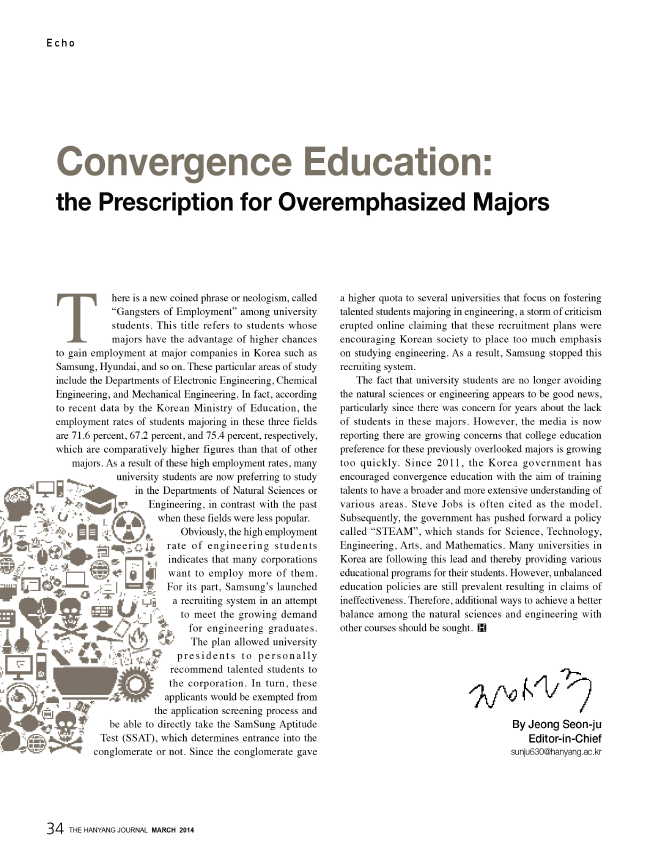
Obviously, the high employment rate of engineering students indicates that many corporations want to employ more of them. For its part, Samsung’s launched a recruiting system in an attempt to meet the growing demand for engineering graduates. The plan allowed university presidents to personally recommend talented students to the corporation. In turn, these applicants would be exempted from the application screening process and be able to directly take the SamSung Aptitude Test (SSAT), which determines entrance into the conglomerate or not. Since the conglomerate gave a higher quota to several universities that focus on fostering talented students majoring in engineering, a storm of criticism erupted online claiming that these recruitment plans were encouraging Korean society to place too much emphasis on studying engineering. As a result, Samsung stopped this recruiting system.
The fact that university students are no longer avoiding the natural sciences or engineering appears to be good news, particularly since there was concern for years about the lack of students in these majors. However, the media is now reporting there are growing concerns that college education preference for these previously overlooked majors is growing too quickly. Since 2011, the Korea government has encouraged convergence education with the aim of training talents to have a broader and more extensive understanding of various areas. Steve Jobs is often cited as the model. Subsequently, the government has pushed forward a policy called “STEAM”, which stands for Science, Technology, Engineering, Arts, and Mathematics. Many universities in Korea are following this lead and thereby providing various educational programs for their students. However, unbalanced education policies are still prevalent resulting in claims of ineffectiveness. Therefore, additional ways to achieve a better balance among the natural sciences and engineering with other courses should be sought.
이 기사를 공유합니다

